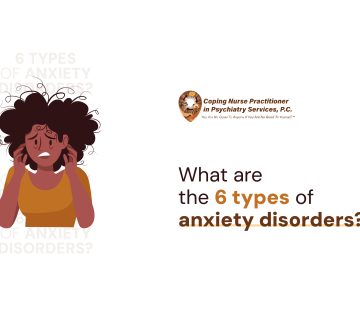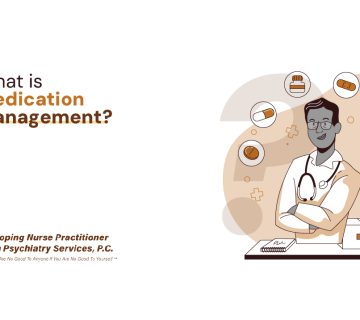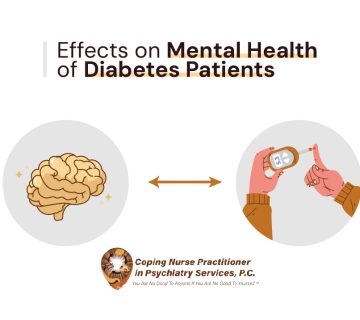Anxiety explained
When you sense danger, stress, or discomfort, your mind and body respond, causing you to feel apprehension, panic, and in some cases, terror.
The ups and downs of everyday life can cause you to feel anxious, which affects your mood and emotions. Don’t worry. That’s normal.
But if you experience symptoms that occur frequently over a six-month period, you could have an anxiety disorder, which may need treatment. Anxiety shouldn’t be so severe that you miss work, school, or struggle with functioning well even when you’re at home. If that’s the case, we encourage you to reach out to us at Coping Nurse Practitioner in Psychiatry Services.
Understanding symptoms of anxiety
Anxiety affects people differently. Common symptoms include:
- Restlessness
- Rapidly breathing
- Nightmares
- Panic attacks
- Butterflies in your stomach
- Trouble with falling asleep
You might also find yourself constantly worrying about things without having the ability to shut down those thoughts. The good news is that we can look at what might be causing you to feel out-of-control and offer effective treatment.
Causes of anxiety
In some cases, the root of your anxiety can stem from medical causes, such as diabetes, thyroid issues, or chronic pain. It can also be a side effect of certain medications you might be taking.
Other triggers involve worries about money, attending big events, experiencing conflict in relationships, and having a negative mindset.
Once we diagnose your condition and understand its cause, we develop a personalized plan of treatment for you to help manage your anxiety.
Treatment for anxiety
Dr. Vansiea’s compassionate approach to your anxiety helps you feel comfortable right away. When you schedule your first appointment with our team, we get to know you personally, learn about your lifestyle routines, and identify factors that might be causing your anxiety.
We also encourage you to practice at-home treatments that can help reduce your symptoms. They include:
- Exercising
- Staying connected to others
- Getting plenty of sleep
- Reducing your alcohol, caffeine, and nicotine
- Meditating
No matter the reason for your anxiety, we can treat you with therapy, recommendations for healthy living, or medication, if needed.
If your anxiety causes concern, don’t hesitate to schedule your visit with us. Call 516-247-3525 today, or book your appointment online. We’re here to help!





No comment